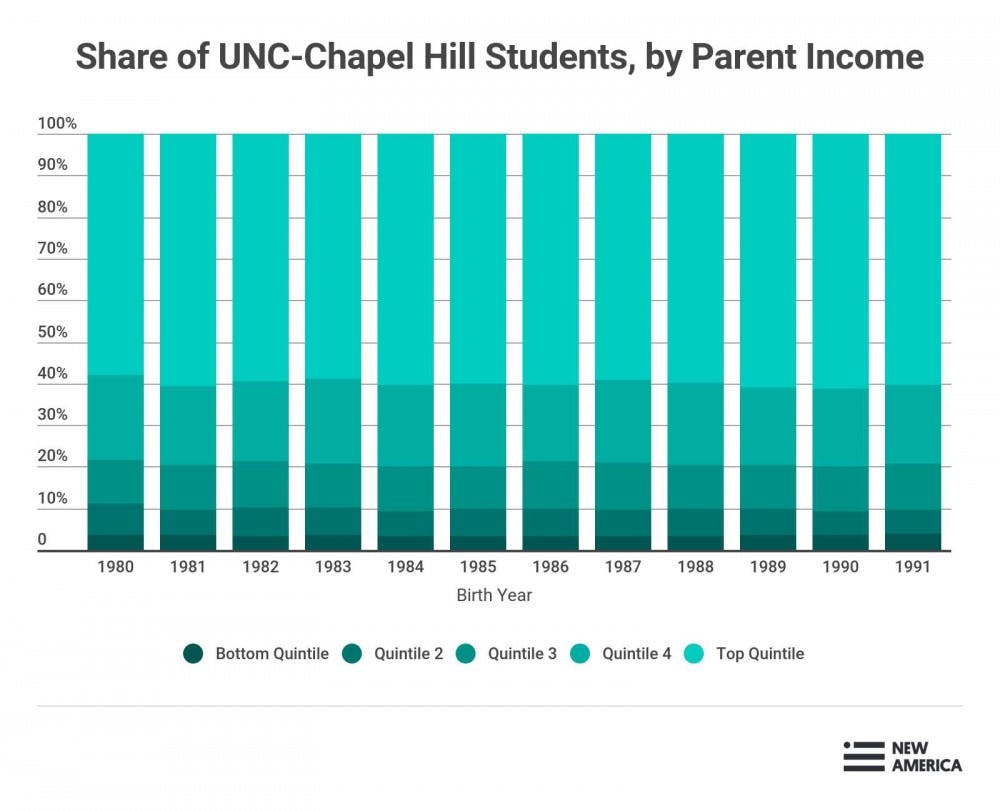A new report by New America, a policy think tank based in Washington, D.C., has found colleges are accepting fewer low-income students than they were 20 years ago.
The report — titled “Moving on Up?” — was edited by Stephen Burd, a senior education policy analyst at New America, and included contributions from various education policy experts.
Using data from a study done by the Equality of Opportunity Project, Burd and his colleagues found that even though low-income students are pursuing higher education, they are generally not attending the same schools as their well-off peers.
“The majority are enrolling in community colleges and for-profit institutions where they tend to have lower graduation rates and diminished economic returns,” Ben Barrett, one of the contributors, said in the report.
Burd said in an interview public universities are shifting admissions toward wealthier students.
“Some of the things that they do is they try to get more out-of-state students who pay a higher amount and also tend to come from wealthier families, or they go out and try to get more international students, who also tend to be wealthier,” he said.
A more positive finding from the report showed low-income students who are admitted to elite universities tend to do as well as their wealthier peers when provided with the same resources, Burd said.
“I think that when you’re looking at the low-income students who make it into these really good schools, you’re kind of looking at the cream of the crop,” he said.
Burd said UNC does not have a large number of low-income students, but uses financial aid to decrease the burden on students in general — rather than focus on recruiting wealthy students.




